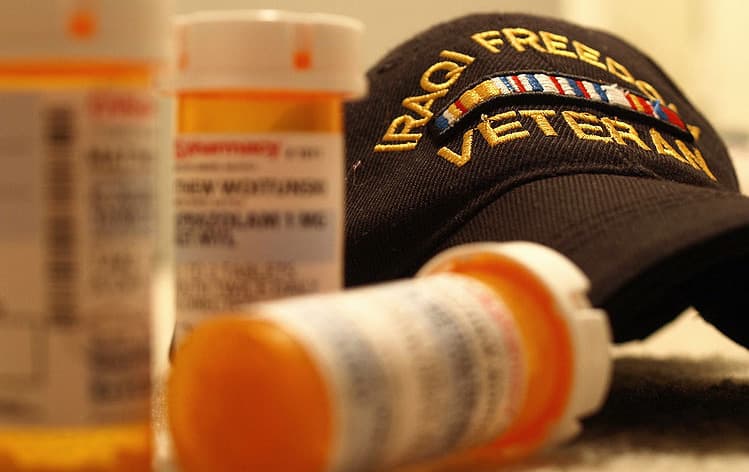 A new study published Tuesday suggests commonly used first-line treatments for PTSD in veterans may not work as well as medical experts once thought.
A new study published Tuesday suggests commonly used first-line treatments for PTSD in veterans may not work as well as medical experts once thought.
The number of American veterans who suffer from PTSD continues to be a serious national public health problem. Recent data show that more than 200,000 Vietnam War veterans still have PTSD, and other research shows that around 13% of Iraq or Afghanistan veterans who experienced combat have PTSD. The numbers continue to climb. As TIME previously reported, PTSD diagnoses among deployed troops grew by 400% from 2004 to 2012.
Now new research, published Tuesday in the Journal of the American Medical Association, reveals that go-to treatments for the disorder may not be as effective as many in the medical community may have believed or hoped. To reach their findings, researchers from the Steven and Alexandra Cohen Veterans Center for Post-Traumatic Stress and Traumatic Brain Injury at NYU Langone Medical Center reviewed 36 randomized control trials of psychotherapy treatments for veterans suffering from PTSD over a 35-year span. Two of the most commonly used treatments—and the most widely studied—are cognitive processing therapy (CPT) and prolonged exposure (PE) therapy.
ATTENTION READERS
We See The World From All Sides and Want YOU To Be Fully InformedIn fact, intentional disinformation is a disgraceful scourge in media today. So to assuage any possible errant incorrect information posted herein, we strongly encourage you to seek corroboration from other non-VT sources before forming an educated opinion.
About VT - Policies & Disclosures - Comment Policy




